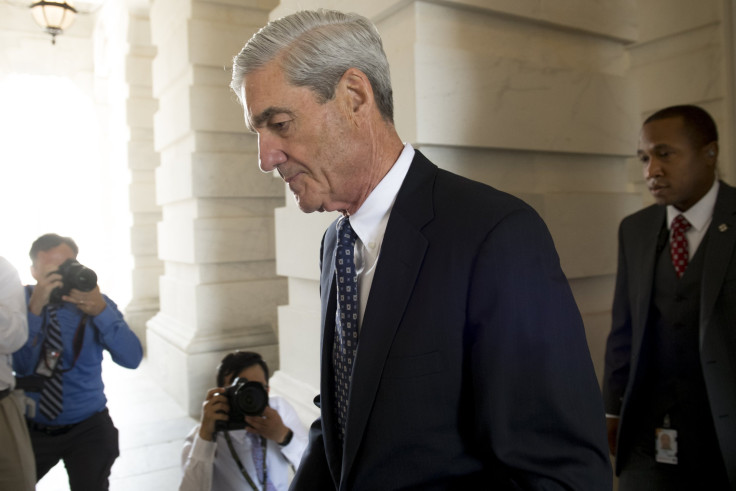Trump-Russia Investigation: The Long Wait For Robert Mueller To Finish The Probe

There has been ample guesswork as to when special counsel Robert Mueller will end his investigation into Russian interference in the 2016 election and the possible role of President Trump’s campaign. With no official word as to the progress of a final report, an anxious nation may feel that the probe is dragging as a new election cycle looms.
Mueller, who led the FBI from 2001 to 2013, took over the investigation in May 2017 after Trump's firing of then-FBI Director James Comey, and has since filed charges against 34 people while securing convictions of some of Trump's key former advisers.
Curiosity over when Mueller will wrap up his probe comes on the heels of former FBI Deputy Director Andrew McCabe's explosive comments to "60 Minutes" that the Justice Department discussed removing Trump in May 2017 by invoking the 25th Amendment to the Constitution. Meanwhile, Rod Rosenstein, the deputy attorney general who has overseen the investigation after Jeff Sessions recused himself, is set to step down in March.
The public has hoped for a quick end, as well. A CNN poll conducted in August said "two-thirds of Americans" wanted to see the probe end before the midterm elections.
Pundits got it right when they predicted Mueller would wait until after November to complete the investigation. Mueller's last indictment was Trump's longtime aide Roger Stone, who was arrested on Jan. 25 on charges of obstruction, witness tampering and making false statements.
So after 21 months, and with the midterms having come and gone, when exactly is the Mueller investigation going to come to an end?
The short answer appears to be: who knows?
The impatience goes back to the middle of 2018, with ABC News in May providing the headline: "A year into Mueller's investigation is there any end in sight?" In July, CNN offered this headline: "How long will Mueller's investigation go on?" New York Times columnist Charles M. Blow expressed his exasperation in June when he posted on Twitter: "Mueller, where the hell are you?!"
There have been plenty of hints that an end may be near but to no avail.
A vague update surfaced in recent weeks. Then-acting attorney general Matthew Whitaker said on Jan. 29 — four days after Stone's indictment — that Mueller was wrapping up his investigation.
"The investigation is, I think, close to being completed, and I hope that we can get the report from Director Mueller as soon as possible," Whitaker said.
Republicans seemed hopeful for a conclusion over the summer, with Sen. John Thune of South Dakota saying in June that Mueller should "start winding this down." Trump's personal attorney, Rudolph Giuliani, said in August that the investigation "might be at the end now."
Giuliani, calling Post from golf course in Scotland, says he has spoken with POTUS today and deliberated over what it all means—Manafort, Cohen, etc. Says, optimistically, they believe Mueller “might be at the end now. He has to be winding down. What else is there? Near the end.”
— Robert Costa (@costareports) August 22, 2018
Giuliani had earlier even suggested that the wait was criminal.
"Well, I think if it isn't over by September, then we have a very, very serious violation of the Justice Department rules that you shouldn't be conducting one of these investigations in the 60-day period," Giuliani said on Aug. 8.
Reports continued into the fall months, with Comey claiming in late September that he thinks Mueller may be in "the fourth quarter" of the investigation. Bloomberg reported on Oct. 17 that two government officials said Mueller was "expected to issue findings on core aspects of his Russia probe soon after the November midterm elections."
More reports surfaced in December of Mueller nearing an end to the probe and that a report to the attorney general could be available by mid-February. NBC News cited a lawyer in contact with special counsel's office who said, "they clearly are tying up loose ends."
After President's Day, the waiting game continues and the special counsel office has remained mum as to whether the investigation is, in fact, wrapping up in the coming days.
While many are eager for Mueller's report, it should be noted that independent counsel Ken Starr's investigation of President Bill Clinton lasted more than four years.
© Copyright IBTimes 2025. All rights reserved.






















